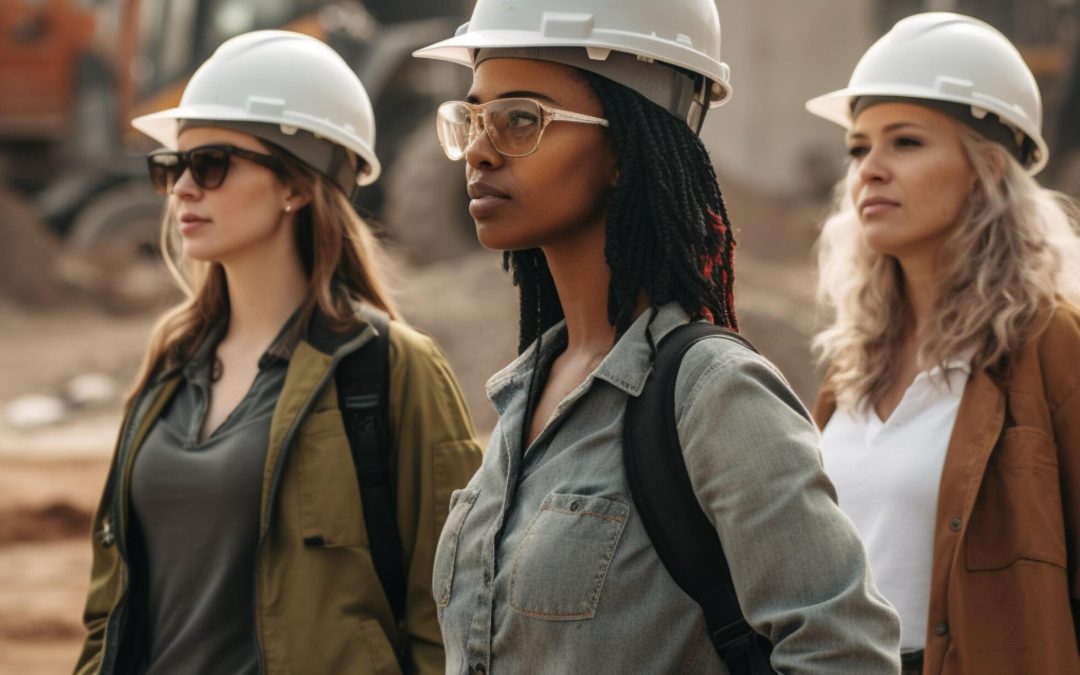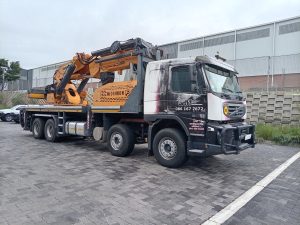By Zandile Nyathi, Head of Human Resources: SPM
Across South Africa, infrastructure and maintenance shape the way we live, work, and grow. These sectors power our homes, keep our industries running, and connect communities to opportunity. This Women’s Month, under the theme Accelerate Action: Rights, Equality, Empowerment for ALL Women and Girls, we are reminded that the future of infrastructure depends on the inclusion and advancement of women.
Yet women remain significantly underrepresented in infrastructure and maintenance roles. According to the Institute of Municipal Engineering of Southern Africa (IMESA), in 2005, women made up only 12% of professional members. A decade later, that figure rose to 23%, and today women represent approximately 30% of IMESA’s professional membership.
Globally, data from the International Labour Organisation and McKinsey & Company estimate women constitute about 22% of the infrastructure workforce. In South Africa, Statistics South Africa and the Construction Sector Charter Council report that less than 10% of the construction workforce is female.
Despite this underrepresentation in the workforce, women have made strong educational gains. The Department of Higher Education and Training, alongside UNESCO Institute for Statistics data, show that nearly half of science, technology, engineering, and mathematics (STEM) degrees in South Africa are earned by women.
However, this educational success has not fully translated into professional representation. According to annual reports from the Engineering Council of South Africa (ECSA), women account for only about 7% of fully registered professional engineers. Among candidate engineers — those still in training or internship phases — women represent fewer than 25%, but their share declines sharply at full registration to around 6%.
This gap is not due to a shortage of talent entering the field. Rather, it reflects challenges in retention and career progression, a pattern documented in numerous studies on women in engineering and infrastructure sectors.
The gender imbalance means the industry is not yet leveraging the full range of skills and perspectives available. South Africa’s infrastructure demands are urgent and vast. The country is upgrading transport networks, modernising water systems, expanding renewable energy projects, and revitalising public facilities. Meeting these needs requires skilled professionals who reflect the nation’s diversity.
Women bring distinct strengths to infrastructure and maintenance roles. Their leadership improves safety standards, encourages innovation, and strengthens team cohesion. Collaborative approaches common among women enhance problem-solving in high-pressure operational settings.
Representation matters. When young women see female engineers leading projects, technicians maintaining equipment, or project managers running operations, they can envision themselves in these roles. This visibility is a powerful driver for future workforce diversity.
Women who begin their careers in technical roles often become powerful role models within their communities, encouraging others to explore opportunities in infrastructure and maintenance. When supported with training and equal opportunities, this inspiration builds a strong talent pipeline that benefits the entire sector.
Still, significant barriers remain. Research into female site engineers’ careers in South Africa highlights discrimination, limited mentorship, cultural expectations, and challenges balancing work and family as key reasons women leave the profession. Invisible career ceilings restrict advancement, and workplace cultures can be unwelcoming.
Practical challenges compound these cultural issues. Construction sites and maintenance operations often involve long hours, remote locations, and physically demanding work. Without adequate support, facilities designed for men, or unbiased task allocation, women face higher attrition rates.
At SPM, we see our role as twofold: delivering world-class infrastructure and maintenance services while ensuring our workforce reflects South Africa’s diversity and potential. We operate in technical sectors including facilities management, large-scale maintenance contracts, and project management for energy and industrial clients. We know diverse perspectives make our teams stronger and our solutions more effective.
We have implemented targeted programmes to recruit, retain, and advance women in technical and maintenance roles. Mentorship pairs junior staff with experienced professionals for guidance and career development. Upskilling pathways help women move from entry-level roles to specialised positions. Clear progression frameworks outline the steps needed to advance into leadership. We offer flexible scheduling and family support, recognising the importance of work-life balance.
These initiatives are essential to meeting the evolving demands of infrastructure. But change requires industry-wide collaboration. Employers, educational institutions, and sector bodies must build pathways from school to sustained careers. This includes introducing girls to technical careers early, providing bursaries and apprenticeships, fostering inclusive workplace cultures, and tracking progress for accountability.
It is also time to challenge outdated narratives that infrastructure work is primarily physically demanding labour. Many roles require technical expertise, precise planning, and innovative thinking — strengths where women excel and transform the sector.
South Africa’s infrastructure needs underpin the economy. Rebuilding and maintaining energy grids, water systems, transport networks, and public facilities depends on attracting and keeping top talent. Excluding half the population slows progress.
Diversity drives performance. Research across industries shows that gender-diverse teams and leadership correlate with greater profitability, productivity, and innovation. In infrastructure, where timelines are tight and stakes high, these factors influence project success.
This Women’s Month, we celebrate the women advancing infrastructure and maintenance on sites, in workshops, control rooms, and operational management. They build and sustain vital systems while shaping a lasting legacy of equality and empowerment.
We call on every organisation to examine its workforce, culture, and policies. Identify gaps. Understand barriers. Commit to concrete actions this year that accelerate rights, equality, and empowerment for women and girls.
Infrastructure is not the work of a few. It is the achievement of many. By accelerating action for women in these roles, we accelerate progress for all South Africans. The future belongs to talent, skill, and opportunity based on commitment and capability, driven by a shared vision for a stronger nation.

